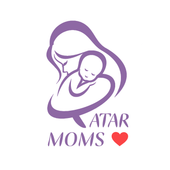Has your doctor mentioned that your baby is larger than average? While this might raise concerns, understanding the reasons behind it can help you feel more confident and reassured. Fetal weight is influenced by several natural factors, and keeping track of your baby’s growth is an essential part of a healthy pregnancy.
In this article, we explore the causes of increased fetal weight and share safe, evidence-based ways to support healthy development and ease any worries.
What Is the Normal Fetal Weight?
The normal fetal weight of a fetus varies depending on the gestational age (weight of fetus by week). As the pregnancy nears its end—at 37 weeks and beyond—the typical fetal weight ranges between 2.5 and 4.5 kilograms. If the fetal weight exceeds this range, it is medically referred to as a "macrosomic" or large-for-gestational-age fetus.
Abnormal Baby Growth During Pregnancy Signs:
An increase in fetal weight isn't always immediately apparent, but it often reveals itself through a combination of medical and physical signs that an expectant mother may notice during pregnancy. Here are the most common indicators:
- A higher-than-normal fundal height, which can be measured in centimeters during checkups.
- Rapid and significant maternal weight gain, especially during the third trimester.
- A visibly larger baby bump that appears more advanced than the actual stage of pregnancy.
- Ultrasound results, which are the most accurate way to measure the baby's head, abdominal circumference, and bone length.
- An elevated level of amniotic fluid surrounding the baby (polyhydramnios).
What Causes a Baby to Be Larger Than Average?
There are several factors that can lead to increased fetal weight, most of which are related to the mother’s health or lifestyle during pregnancy. Here are the most common causes:
1. Gestational diabetes or chronic diabetes:
When a mother's blood sugar levels are not well controlled, excess glucose crosses the placenta to the baby. This stimulates the fetal pancreas to produce more insulin, leading to accelerated growth and increased fat storage.
2. Maternal obesity or excessive weight gain:
Women who are overweight before pregnancy or gain excessive weight during pregnancy are more likely to give birth to babies who weigh more than average.
3. Prolonged pregnancy (beyond 40 weeks):
Extending pregnancy past the expected due date allows the fetus to continue growing, often resulting in additional weight gain, especially during the final weeks.
4. Genetic factors:
If one or both parents have a larger body build, it’s naturally more likely for the baby to be larger. Similarly, a history of increased baby birth weight increases the chances of recurrence.
5. Excessive calorie intake:
Poor nutrition, an unbalanced diet, and excessive consumption of sugars and fats can lead to excessive fetal weight.
6. Unsupervised use of supplements:
Overuse of dietary supplements, protein powders, or appetite-stimulating medications without medical guidance can cause unhealthy fetal weight.
Is It Normal for a Baby to Be Larger Than Age?
A fetal weight can be considered normal if the difference between its size and gestational age is slight (such as one to two weeks), and there are no signs of complications or underlying conditions. This is especially true if the parents have a larger body build or there is a family history of larger babies. In some cases, inaccurate estimation of gestational age may also make the baby appear larger than expected when, in fact, growth is within normal limits.
However, if the size discrepancy is significant (more than two weeks) or if the ultrasound shows excessive growth in specific organs, it’s important to consult your doctor promptly and take the necessary medical steps.
Is It Risky to Have an Overweight or Large Baby?
Yes, an unusually large baby (macrosomia) can pose risks if not closely monitored by a healthcare provider. Here are some of the potential complications for both mother and baby:
1. Risks for the Mother:
- Uterine rupture or birth canal injuries.
- Difficulty during vaginal birth.
- Increased likelihood of requiring a cesarean section.
- Greater risk of excessive postpartum bleeding.
2. Risks for the Baby:
- Reduced oxygen supply during birth.
- Low blood sugar levels after birth.
- Increased long-term risk of obesity or diabetes.
- Potential shoulder injury during birth (shoulder dystocia).
How to Manage Increased Fetal Weight?
Managing a baby’s increased weight doesn’t mean trying to directly reduce the baby’s size. Instead, it involves addressing the underlying causes to ensure safe and healthy growth for both mother and baby. Here are safe and natural ways to manage increased fetal weight:
1. Controlling Gestational Diabetes:
For mothers diagnosed with or at risk of gestational diabetes, maintaining stable blood sugar levels is crucial. Doctors typically recommend a special diet, regular glucose monitoring, and insulin therapy under medical supervision.
2. Balanced Nutrition:
Following a healthy, well-balanced diet rich in protein, fiber, vegetables, and whole grains while limiting excess sugars and refined carbohydrates supports appropriate fetal growth.
3. Moderate Physical Activity:
Gentle movement improves blood circulation and reduces insulin resistance. A daily walk of 20–30 minutes can help manage maternal weight and support healthy fetal development.
4. Regular Prenatal Checkups:
Staying consistent with doctor visits allows for careful monitoring of the baby’s size, amniotic fluid levels, and heart rate, helping determine the safest delivery plan.
5. Avoiding Unnecessary Supplements:
Refrain from taking high-calorie dietary supplements or extra vitamins without medical advice, especially those that may contribute to excessive fetal growth.
In the end, maintaining the mother’s health and proper nutrition remains the cornerstone of healthy and balanced fetal development. While a fetal weight can sometimes be normal, it may also signal underlying health concerns that deserve attention. Regular medical follow-ups and adhering to your doctor’s guidance are essential steps to avoid potential complications for both mother and baby.
Every moment of your pregnancy is a memory in the making — from the first heartbeat to every gentle kick. At Qatar Moms, we believe that motherhood deserves care from day one. That’s why we offer a curated selection of Ideal Pregnancy Supplements, Ultra-Soft Maternity Pillows, and Mom-Care Products from trusted brands like Mom Cozy Brand, known for its unmatched comfort, and Frida Mom Brand, the go-to name in postpartum and pregnancy essentials.
You deserve comfort, care, and confidence — shop now at Qatar Moms store, where motherhood begins with love.
 FREE DELIVERY FOR ORDERS ABOVE 100 QAR
FREE DELIVERY FOR ORDERS ABOVE 100 QAR DELIVERY WITHIN 3 HOURS
DELIVERY WITHIN 3 HOURS APPLE PAY AND CARD PAYMENT AVAILABLE
APPLE PAY AND CARD PAYMENT AVAILABLE



